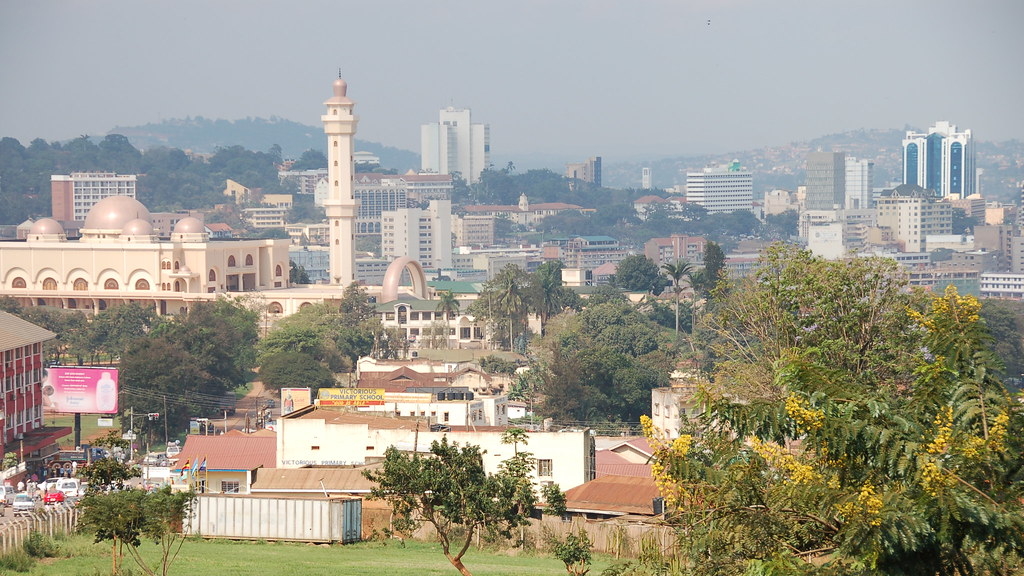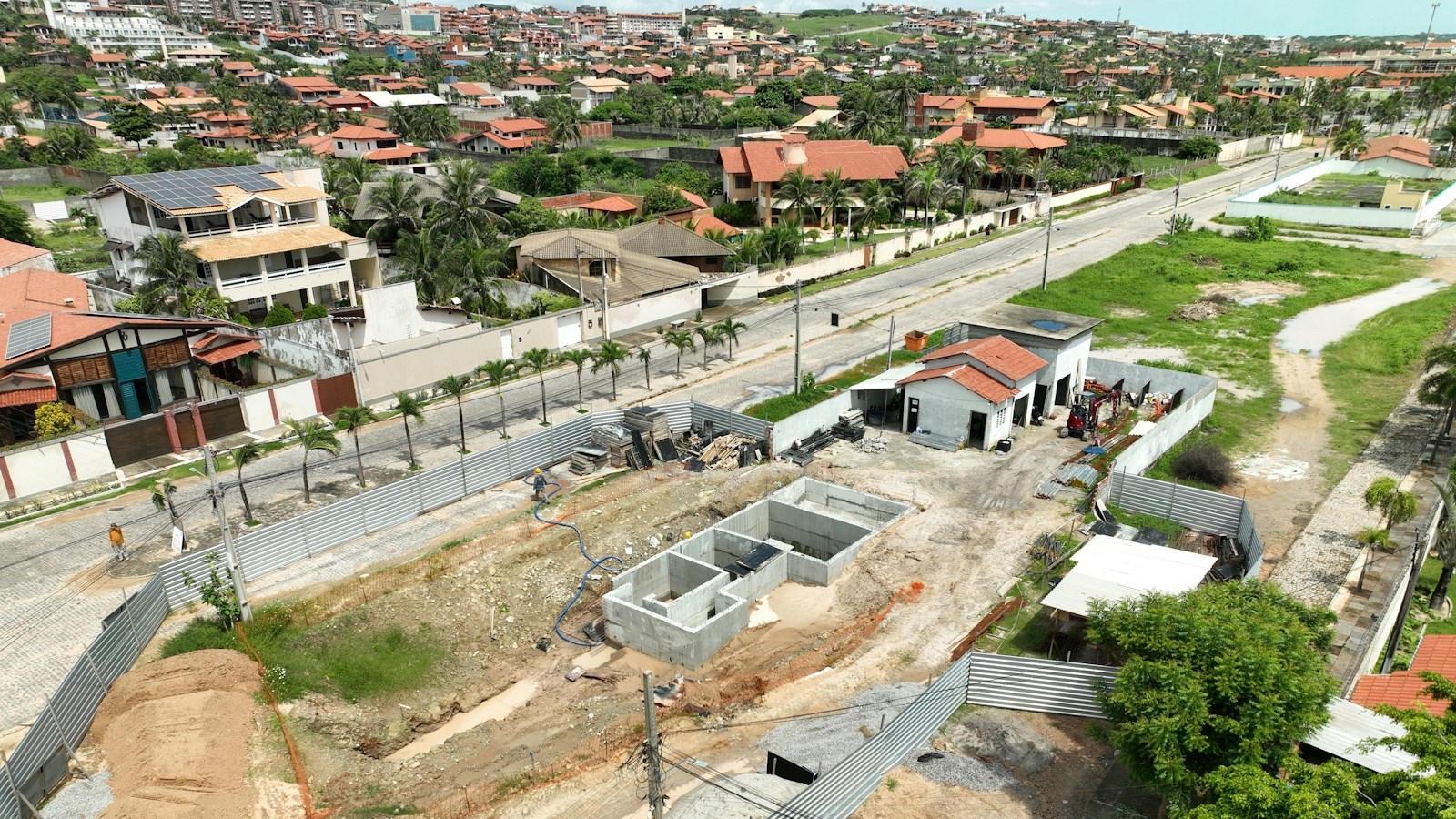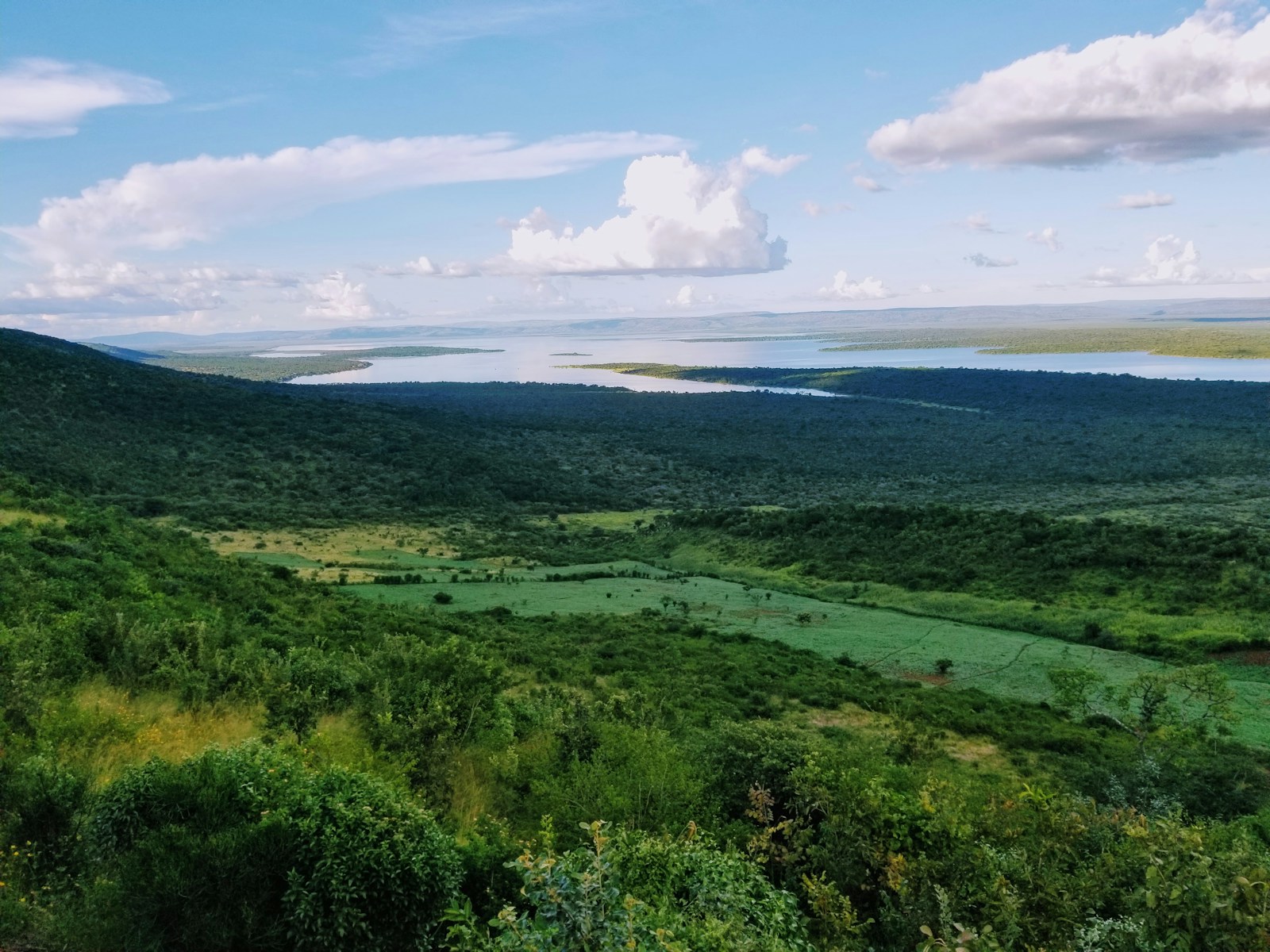- Opportunities for Real Estate Investment Under Each Tenure System
- Risks Associated with Land Tenure and Ownership
- Practical Tips for Investors to Mitigate Risks and Maximize Returns
- Conclusion
Uganda’s real estate sector is growing rapidly, fuelled by urbanization, population growth, and economic development. Each land tenure system offers distinct opportunities for real estate investment, but also comes with specific risks. This section outlines the opportunities under each tenure type, followed by the risks to watch out for, and finally some practical tips to mitigate those risks and maximize returns.
Opportunities for Real Estate Investment Under Each Tenure System
Freehold Land – Long-Term Security and Flexibility
Freehold land is ideal for investors looking for complete and permanent ownership. With a freehold title (available only to Ugandan citizens or majority Ugandan-owned companies), you can develop the property without time limit and even leave it to heirs. This tenure is well-suited for projects that require a high level of security and control, such as large commercial developments, residential estates, or agricultural ventures (for citizens). The ability to use freehold titles as collateral for financing enhances investment potential – you can borrow against the land to fund construction, for example. Because freehold represents absolute ownership, properties under this tenure tend to appreciate strongly and face fewer legal restrictions on use. Opportunity: If you are a Ugandan or partnering with locals, acquiring freehold land in growth areas (like upcoming suburbs, industrial zones, or fertile agricultural land) can yield significant returns over time as land values rise. Uganda’s booming real estate market – projected to grow substantially in the coming years – means well-located freehold land can increase in value and generate rental income or development profits. Note: Freehold land is relatively scarce (since much land is customary or Mailo), so competition can be high for prime freehold plots.
Leasehold Land – Accessible and Investor-Friendly
Leasehold is the go-to option for foreign investors and is also used by Ugandans, especially for government-owned land or land in cities. A major opportunity with leasehold is that it grants foreign investors access to land markets they otherwise could not participate in. With a long-term lease (e.g. 49 or 99 years), a foreign investor can confidently invest in building a factory, hotel, or housing development. Leases from the Uganda Investment Authority or district land boards often come in industrial parks or strategic locations earmarked for development, which can be advantageous (infrastructure and incentives might be available). Even privately negotiated leases can be very secure – once registered, the lease is legally binding and enforceable. Another opportunity is that leasehold arrangements can be tailored: terms can include renewal options, rent adjustments, and specific use clauses to suit the project. Leasehold land is typically cheaper upfront than freehold (you pay annual ground rent rather than a huge purchase price), which can improve cash flow for investors. Also, a lessee can often mortgage their leasehold interest to raise capital. For example, many foreign-owned hotels and enterprises in Uganda sit on leasehold land; the investors enjoy near-ownership rights during the lease period and often recover their investment well before the lease expires. Opportunity: By using leasehold, investors can tap into sectors like commercial real estate (office buildings, shopping malls), tourism facilities, and manufacturing, even if they are not citizens. They can negotiate leases in high-demand areas (like Kampala city) that a freehold might be impossible to get. The key is that Uganda’s legal system strongly upholds lease contracts, so a well-structured lease is a reliable asset.
Mailo Land – Prime Locations with Perpetual Rights
Mailo land can present lucrative opportunities, especially for Ugandan investors, because it covers much of the central region including peri-urban areas around Kampala and other townships in Buganda. Some Mailo plots are located in areas experiencing rapid urban expansion and can be great for residential or commercial development. The advantage of Mailo is that it’s essentially a form of freehold – ownership is perpetual and can be transferred or subdivided. Many beautiful agricultural estates, campuses, and residential neighborhoods in Central Uganda are on Mailo land. For an investor who is Ugandan (or investing through a Ugandan entity), acquiring Mailo land can be a way to secure large tracts that are not available as freehold. Additionally, because Mailo land often comes with tenants, an investor willing to negotiate with or compensate those tenants can unlock the land’s full potential (for instance, by consolidating holdings and redeveloping). In some cases, Mailo land with tenants might be priced lower due to those encumbrances, so there is an opportunity to buy low, resolve the tenant interests, and then have a high-value asset. Opportunity: Mailo land in developing areas can be used for housing projects, shopping centers, or farming. The presence of tenants means there is an existing community – an astute investor could partner with or resettle tenants in a way that everyone benefits (for example, developing a portion of the land while leaving another portion for tenant use, or providing compensation). Once any occupant issues are settled legally, Mailo land can be fully utilized like freehold. Moreover, Mailo titles are registered under the state-guaranteed system, which gives confidence in transactions (all transfers or subdivisions are recorded by the Ministry of Lands). For investors focused on Central Uganda, Mailo is often the main avenue to acquire land, and many successful real estate projects (e.g. new suburbs, mixed-use developments) are on Mailo land.
Customary Land – Large Scale and Community-Based Investment
Customary tenure lands, prevalent in northern, eastern, and parts of western Uganda, offer a frontier for investment. These areas often have vast tracts of land suitable for agriculture, forestry, mining, or eco-tourism. Land under customary tenure may be less expensive to acquire (via negotiated purchase or lease from the community) compared to titled land, due to the informal nature of ownership. For investors with a long-term view, there is an opportunity to partner with local communities and leaders to develop these lands in a mutually beneficial way. For example, an investor could lease a large area from a clan in northern Uganda to establish a commercial farm or solar energy park, providing rent or profit-sharing to the community. As Uganda continues to develop, some customary land in strategic locations (near towns or infrastructure projects) will likely be formalized and appreciate greatly in value – getting in early through agreements with the customary owners can yield high returns in the future. Also, the government has been encouraging registration of customary land and even issuance of titles or certificates; investors who facilitate surveying and titling of customary land can secure legal ownership (usually in the name of a community or individual who then leases/sells to the investor). Opportunity: Customary land investment can support sectors like commercial agriculture (tea, sugar, coffee plantations), timber plantations, ranching, and tourism (e.g. safari lodges on community land near national parks), which might be harder to pursue in the more densely populated south. Additionally, investing in customary areas can have positive social impact by bringing development to rural communities – many international investors structure deals as community land trusts or joint ventures, which can attract goodwill and sometimes government support. Key point: Customary land opportunities are best realized through respect for local rights and legal processes to formalize land agreements.
On the whole, Uganda’s growing economy and stability have made real estate investment attractive one. Rental yields in urban areas like Kampala average around 8% according to recent market reports, which is high by global standards. Property values have been trending upwards; in some segments, analysts project double-digit annual appreciation in the coming years. This means that a well-chosen property (in a good location and under a secure tenure arrangement) can offer both ongoing income and capital growth. Each tenure system – freehold, leasehold, Mailo, and customary – can be a vehicle for these returns, as long as the investor navigates the system’s nuances.

Risks Associated with Land Tenure and Ownership
Despite the opportunities, investing in land in Uganda carries certain risks and challenges. Being aware of these risks is the first step to mitigating them. Here are some of the notable risks associated with land tenure in Uganda:
Land Disputes and Title Fraud
Land disputes are common, particularly in areas with overlapping claims of ownership (e.g., where customary land was sold multiple times or where Mailo landlords and tenants conflict). Fraudulent land transactions – such as fake titles, multiple titles for the same parcel, or unscrupulous sellers – are a known problem. Such fraud can lead to protracted court battles and even violence. Indeed, land fraud and disputes in Uganda often result in conflicts, sometimes turning violent and causing loss of life. The uncertainty over ownership in disputed cases makes investors hesitant to commit funds. For example, a developer might buy land only to later find a third party claiming that land, halting the project. The root causes include a historically inefficient land administration, corruption, and a backlog in land registration that bad actors exploit. Risk: Without proper precautions, an investor could end up tied in legal battles or even lose the property if a court upholds another party’s claim.
Overlapping Rights (Mailo and Customary Conflicts)
By their nature, Mailo and customary tenure can involve multiple layers of rights on the same land. On Mailo land, even if you hold the title, you may have long-standing occupants who also have legal rights. Removing or resettling these occupants can be extremely challenging – the law explicitly protects lawful occupants from eviction except by court order and for limited reasons. Eviction processes, if they occur, require compensation and can take years in court. Similarly, with customary land, one person’s sale of clan land may be later contested by family or community members who claim it was communal property. There are cases in northern Uganda, for instance, where local leaders “sold” customary land to investors without full community consent, leading to land grabbing accusations and conflicts. Post-conflict areas (like Acholi in the north) have seen contentious land disputes as displaced people return, only to find investors or other groups claiming large swaths of customary land. Such scenarios pose a risk of project delays, community unrest, or even nullification of the land deal. Risk: If investing in Mailo land, you may essentially be buying only the landlord interest while the occupants remain, which limits immediate use of the land. If investing in customary land, any perceived illegitimacy in how the land was acquired can lead to community pushback and potential legal nullification if proper procedures weren’t followed.
Land Grabbing and Encroachment
In Uganda’s boom, land grabbing has been a concern – this term refers to powerful individuals or entities acquiring land illegitimately, often displacing rightful owners or communities. Investors need to be cautious not to become entangled on either side of a land grab. For instance, if a piece of land seems “too cheap to be true,” it might be because the seller doesn’t have true ownership or obtained the land by displacing others. In rural areas, poorer occupants might be coerced or tricked into selling land at low prices, leading to local resentment and potential legal challenges later (if authorities review the sale). Conversely, if you own a large undeveloped plot, you might face encroachment by squatters or even opportunistic claimants, especially if the land is left idle. These people might settle on the land and later claim rights as bona fide occupants, or use political influence to remain. The rapid increase in land values has fueled speculative grabbing. Government projects (like roads or oil development in the Albertine region) also spur land grabs by speculators anticipating compensation. All these factors mean an investor could suddenly find others occupying or claiming their land. Risk: Land grabbing and encroachment can result in loss of access to your land, costly legal defense, or at worst, loss of the land if the encroachers successfully assert rights (for example, adverse possession claims after long occupation, or political intervention on their behalf).
Unclear Land Titles and Bureaucratic Challenges
Uganda’s land registry has historically been plagued with issues – from slow bureaucratic processes to instances of duplicate titles (two titles issued for the same land). Although improvements are underway (digitization, zoning offices), challenges remain. An investor might face long delays in obtaining a title or registering a transfer, which ties up capital. In worst cases, forged titles are a risk – there have been incidents of criminals producing fake land titles or impersonating owners. Due diligence can mitigate this, but the mere existence of these fakes can complicate transactions. Moreover, valuation and surveying inaccuracies can result in boundary disputes or paying more tax than necessary. Corruption is another aspect: there are reports of officials in land offices taking bribes to illegally alter records or create titles. This environment means the onus is on the investor to verify and re-verify documents. Risk: You might pay for land and later discover administrative problems (e.g., the title is under a caveat, or part of the land is actually public road reserve, etc.). Dealing with the land office to correct issues can be time-consuming and costly. Low transparency can also obscure whether all property taxes or ground rents from previous owners were paid – if not, you as the new owner could inherit liabilities.
Government Policy and Political Risk
While Uganda has generally stable property laws, there are policy risks to keep in mind. The government retains the right of compulsory acquisition of land for public purposes (with compensation), so if your land is in the path of, say, a new highway or power project, you may be forced to sell to the state. The adequacy and timeliness of compensation in such cases have been points of contention. There have been discussions at the policy level about land reforms – for example, debates on amending the Constitution to allow the government to take possession of land before compensation is fully agreed (to speed up infrastructure projects). Such changes, if enacted, could affect investor confidence. Also, local political dynamics can pose risks: in some areas, local authorities may be sympathetic to community claims over investor claims, especially if they perceive an injustice. Another policy aspect is the one mentioned earlier: foreign investors are restricted from owning land for agriculture. A foreign investor who bypasses this (perhaps by using local fronts) is taking on legal risk – policies can be enforced unpredictably, and one could lose rights if found in violation. Additionally, changes in tax policy (for instance, if the government decided to introduce an annual land tax or increase rates) could affect the cost of holding property. Risk: Policy shifts or political decisions can impact land rights. It’s possible (though not frequent) for the rules of the game to change – e.g., new regulations on land use, or a crack-down on foreigners in certain sectors. Staying informed about Uganda’s land policy landscape is important for any investor to avoid being caught off-guard.
Despite these challenges, it’s important to note that many investors navigate these risks successfully by being proactive and knowledgeable. The next section provides practical recommendations to help mitigate these risks and ensure your investment yields positive returns.

Practical Tips for Investors to Mitigate Risks and Maximize Returns
Investing in Uganda real estate can be highly rewarding if done right. Here are some practical steps and recommendations to help you reduce risks and get the most out of your land or property investment:
Conduct Thorough Due Diligence
Before you commit to buying or leasing land, verify the land ownership and status meticulously. This means conducting a title search at the Ministry of Lands to confirm the current registered owner and to check for any encumbrances like mortgages, caveats, or pending disputes. Ensure that the title is genuine – cross-check the title reference with the Lands Office records. It’s wise to get an official search letter from the registry. Additionally, inquire at the local land office or with community leaders (for customary land) to see if anyone else claims the land. Basically, never rely solely on documents provided by the seller – always independently verify.
Survey and Inspect the Land
Hire a licensed surveyor to open the boundaries and confirm that the land on the ground matches what is on the title or lease map. This will prevent boundary disputes with neighbors and ensure you’re getting the correct parcel. Sometimes fences or markers are moved, so a survey is crucial. While on-site, also inspect if there are any people living on or using the land (tenants, squatters, farmers). Identifying occupants early allows you to assess if they have lawful claims. It’s also prudent to check for any signs of multiple titles or allocations – unfortunately in Uganda there have been cases of duplicate titles, so verifying coordinates and plot numbers with the survey department can avoid falling into a “double titling” trap. In short, know exactly what you’re buying and who else might be interested in it.
Engage Professional Help
Don’t skimp on professional services. A qualified real estate lawyer is indispensable – they will review or draft sale agreements, ensure proper execution of transfer forms, and generally safeguard your legal interests. They can also help in performing due diligence (for example, checking court records for any litigation involving the land). A reputable real estate agent or broker can provide insights on the area, fair pricing, and background of the property, although you should still verify everything yourself. Using a licensed surveyor (as mentioned) is critical for mapping and also for processing title transfers that require survey diagrams. If you are purchasing through a company or investing large sums, involve an accountant or tax advisor to structure the purchase tax-efficiently (they can help with things like VAT on commercial properties or the 6% withholding tax compliance). While these services add to upfront cost, they can save you from disastrous losses or legal headaches later.
For Mailo Land, Address Tenant Issues Respectfully
If the land is Mailo and has occupants (bibanja holders), factor them into your investment plan. Determine their status – are they lawful or bona fide occupants under the law? If so, they have the right to stay and even to first refusal if the land is sold. Engage with them early: sometimes buying out their interest, resettling them elsewhere, or formalizing their tenancy with clear boundaries can turn a problematic situation into a win-win. Always provide any agreed compensation in the presence of local authorities and document it. Never attempt forced eviction – it’s illegal and will result in court injunctions or worse. Instead, negotiate or mediate through local council leaders or the Area Land Committee. In some cases, tenants may be willing to sell you their kibanja rights, after which you can seek to have the land unencumbered. Aligning the interests of Mailo landlords and tenants is delicate, but once resolved, the property’s value and utility will increase greatly.
When Dealing with Customary Land, Get Community Consent and Formalize
For customary land acquisitions, it’s essential to work within the customary framework. Meet with the clan or family elders who have authority over the land and ensure that all relevant members agree to the transaction. Often, multiple signatures or witnesses are needed to avoid someone later claiming they didn’t consent. Use the local land administration (Area Land Committees and District Land Boards) to secure a Certificate of Customary Ownership in the seller’s (or your) name if possible, or directly convert the land to freehold with all approvals. This legal documentation will immensely strengthen your claim. If converting to freehold isn’t feasible immediately, at least document the sale/lease in a legally recognized format, and have it registered with the sub-county chief or land board. Also, consider community benefits as part of the deal – for example, agreeing to build a community facility or offering employment can help gain local support and reduce the risk of disputes. Remember that in places where 90%+ of land is customary (like parts of northern Uganda), large-scale investments have triggered tensions, so transparency and community engagement are key mitigating strategies.
Verify and Pay All Taxes and Fees
Ensure that any outstanding property rates or ground rent on the land are paid by the seller before transfer, or adjust the price to pay them off. As noted, you’ll need a clearance certificate for property rates to register a transfer. Going forward, budget for and pay your annual property rates to the local authority – defaulting can lead to penalties or even a lien on your property. Similarly, if you have a lease, pay the ground rent timely to keep the lease valid. When you purchase the property, pay the stamp duty and obtain proper registration; this is non-negotiable for legal ownership. If you’re the buyer in a transaction that requires withholding tax (as explained earlier), don’t neglect to withhold and remit that 6% to URA – failing to do so can make you personally liable for the tax. Basically, staying compliant with tax and legal payment obligations protects your investment – it keeps the title clean and spares you from fines or legal action.
Understand Zoning and Land Use Regulations
Before finalizing a land deal, especially in urban or peri-urban areas, check the zoning and permitted land use for that area. Uganda has zoning rules (residential, commercial, industrial, agricultural, etc.) and building regulations enforced by local authorities. If your plan is to build apartments, make sure the land is in a zone that allows multi-unit housing. If it’s zoned only for single-family homes or is agricultural land within a city, you might need special permission to change its use (planning permission). Ignoring zoning can lead to denied building plans or even demolitions. You can get zoning information from the local physical planning office or municipal authority. By aligning your project with the land’s designated use (or securing a change of use permit if needed), you avoid regulatory trouble and ensure the viability of your investment.
Consider Ownership Structures Carefully (for Foreign Investors)
If you’re a foreign investor, decide whether to lease as an individual, incorporate a local company, or partner with citizens. Each approach has pros and cons. Leasing directly as an individual is straightforward for control, but note you cannot own the land beyond the lease. Setting up a Ugandan company where you hold minority shares (and Ugandans hold at least 51%) could allow the company to own freehold land, but recent court decisions have warned against using local companies as a mere proxy for foreign ownership. If you do go the company route, ensure the company’s constitution restricts share transfers to maintain majority citizen ownership, or else the company itself might be deemed foreign. Many investors simply opt for long leases which are safer legally. Partnering with a Ugandan who contributes land to a joint venture can be fruitful, but choose partners with integrity and draft clear agreements outlining each party’s rights and exit options. Essentially, structure your investment so that it complies with the law while protecting your financial interest – this might involve creative arrangements, but always with legal guidance.
Stay Informed and Vigilant
Keep an eye on local developments around your property. If you hear of an infrastructure project (road, railway, pipeline) slated near your land, investigate – it could raise your land’s value or, conversely, mean the government might seek to acquire it. Register any purchase with the relevant local land office so that you’re on record as the owner – this helps prevent others from attempting fraudulent claims on your property. It’s also wise to maintain good relationships with local leaders and neighbours; they can alert you if someone tries to encroach or if any issue arises. Regularly visit or inspect your land if it’s vacant, to show “presence” and deter squatters. In case of any sign of encroachment or competing claims, address it immediately through legal channels (e.g., place a caveat on the title if someone else does, or seek a court injunction against trespassers). Early action can prevent protracted disputes.
Maximizing Returns – Strategy and Value Addition
To get the best returns on your investment, think strategically about the property’s use. If it’s urban land, perhaps the highest and best use is a multi-story building – consider developing it or partnering with a developer, rather than leaving it idle. If it’s large agricultural land, improve its productivity (through irrigation, better crop choices) to increase its value. Keep an eye on market trends: for example, areas near the new oil region in western Uganda have seen land price jumps – anticipating such trends can lead to lucrative investments. Also, take advantage of any tax incentives: Uganda sometimes offers incentives for developments in certain sectors (like low-cost housing or industrial manufacturing). Structuring your project to qualify (for example, by investing through the Uganda Investment Authority for an investment license) could give you tax holidays or duty-free import of construction materials, improving your ROI. Finally, ensure your property is well-managed if it’s rental – good property management can maintain high occupancy and stable income, taking full advantage of the ~8% rental yields the market offers. Over time, as property values appreciate – often in the range of 10-15% annually in growth corridors – you can consider refinancing or selling to realize capital gains, but do so in a tax-efficient manner (remember the primary residence exemption or using roll-over relief if reinvesting, where applicable).
Conclusion
In conclusion, Uganda’s land tenure systems require investors to be savvy, but they also present a landscape ripe with opportunity. By understanding the tenure rules (freehold, leasehold, Mailo, and customary) and working within the legal framework, both local and foreign investors can find pathways to invest securely. Always abide by the restrictions on foreign ownership by using the permitted leasehold routes or partnerships, and pay attention to your tax obligations to remain in good standing with authorities. Real estate in Uganda can yield solid returns – from rental income, capital appreciation, to agribusiness profits – especially as the country’s economy grows. But success comes to those who pair optimism with caution: do your homework on any piece of land, engage the right people, respect local laws and communities, and plan for the long term. With those measures in place, investing in Uganda real estate can indeed fulfill the adage that “The best investment on earth is earth”, turning your Ugandan real estate venture into a rewarding asset for years to come.






Join The Discussion